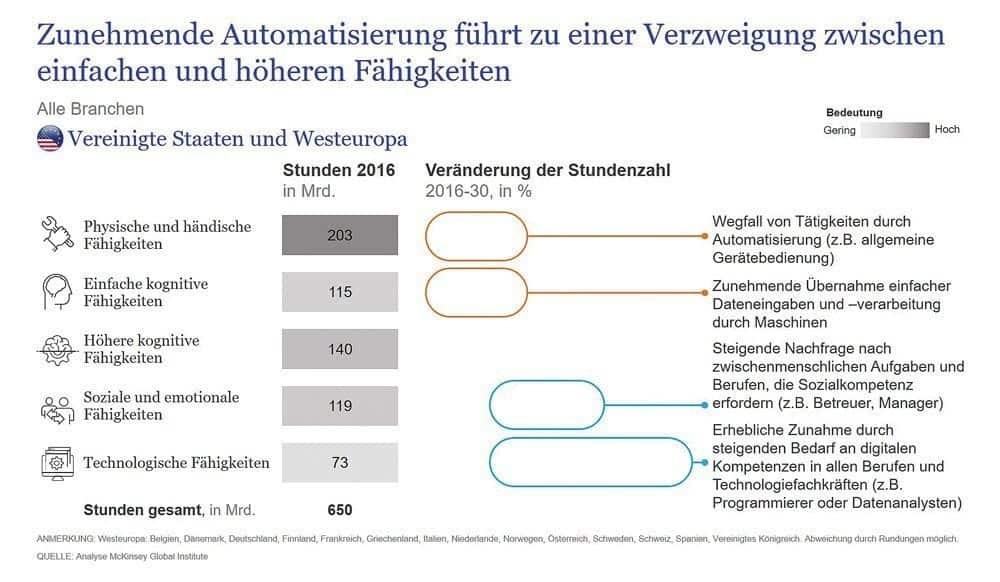Artificial intelligence - human know-how


Automation and artificial intelligence will dramatically change everyday working life and the skills required for it. By 2030, the proportion of work requiring technical knowledge will increase by up to 55 percent, while fewer and fewer manual or motor skills will be needed (minus 14 percent).
At the same time, social and emotional skills will gain in importance. The proportion of working time requiring these skills will increase by around 24 percent by 2030.
These are the key findings of the cross-national study "Shift skills - Automation and the future of the workforce" by McKinsey Global Institute (MGI).
For the first time, the MGI has quantified the effect of the use of new technologies on the demand for certain skills. In Germany, the decline in working time attributable to the use of manual skills will be even more pronounced than in the other countries studied, at minus 22 percent by 2030.
"The reason is that jobs, especially in manufacturing, will require less and less physical strength and manual control of machines"
says Anna Wiesinger, Düsseldorf-based junior partner at McKinsey and co-author of the study.
The technological skills of workers in Germany are already comparatively high by international standards, Wiesinger notes.
Germany currently accounts for 14 percent of working time devoted to technological expertise, ahead of the U.S. and France (11 percent each) or the United Kingdom (12 percent).
By 2030, this proportion will increase to 19 percent in Germany. The skills examined include IT expertise, programming and analysis skills, and scientific research and technical design capability.
Emotional skills in demand
However, automation and the use of AI will also increase the importance of other skills. The proportion of working hours in Germany that require social and emotional skills will increase by almost a quarter to 20 percent.
This means that even in times of digitization, communication and negotiation skills, empathy and leadership continue to gain in importance.
Overall, the MGI analysis shows a further increase in demand for workers, who are already in short supply today, due to automation. The healthcare sector plays a special role in an international industry comparison. Wiesinger:
"Healthcare is the one sector where demand for physical and manual skills also continues to grow, by about five million workers worldwide."







